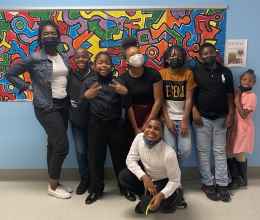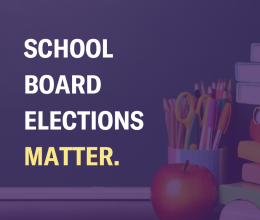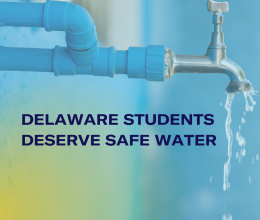
By: Equetta Jones, Principal at Love Creek Elementary School
For students, an environment that truly fosters learning and development is about far more than the classroom they’re in or the curriculum they’re taught. It’s about more than students themselves — it’s about families.
Trusting families produce trusting students. That’s why school leaders must be aware of the role they play in creating spaces that promote inclusivity and engagement of students as well as their larger networks of loved ones as well.
Promoting intentional family involvement leads to:
- Academic success: When families are involved in their children's education, students are more likely to earn higher grades, have better attendance, and complete homework more consistently.
- Emotional support: Family engagement provides a sense of security and belonging for children, which is crucial for their emotional development.
- Positive behavior: Students whose families are involved in their education tend to exhibit fewer behavioral problems in school, creating a more conducive learning environment for all students.
- Effective communication: Engaged families create a trusting environment that promotes authentic lines of communication. Families will feel comfortable expressing their needs.
As a principal, I recognize the responsibility to build a culture of trust and communication between students, educators, and families. Ensuring that family members are aware of the core values I hold as an educator and a community member, and how I expect those values to be reflected in my school and by my students daily involves consistent and conscious efforts to:
- Create communication channels with families and ensure that teachers use multiple means of communication;
- Enact inclusive policies such as providing childcare, food, translation, transportation, and flexible scheduling for meetings and events, so all families have equitable access;
- Promote volunteer opportunities for families to participate in school activities and strengthen their connection to the school community; and
- Host family workshops on topics like parenting skills, child development, financial literacy, and academic support to empower families to be more engaged in their children's education.
As a community member and advocate for Delaware’s schools, I also recognize the responsibility of all Delawareans in promoting family engagement in our schools. We all must play a role in:
- Amplifying the voices, experiences, and concerns of families and creating platforms that allow families to advocate for positive change in their school communities
- Supporting and encouraging families to influence policy decisions that impact education, health, and other critical areas for children; and
- Empowering families to become leaders and change agents in their communities, creating a ripple effect of positive change.
Everyone benefits when our school systems succeed. By building a culture of trust within our schools, we can create a brighter future for our children, our communities, and our state.








